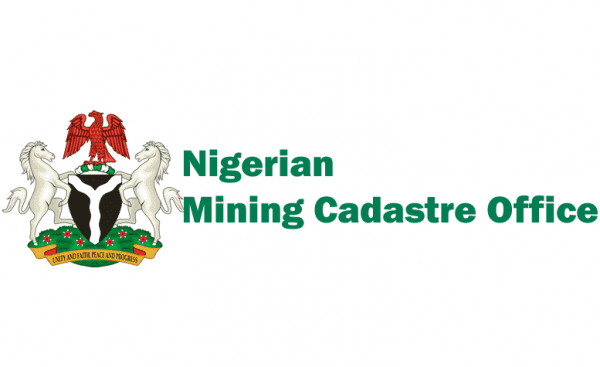In a significant move to strengthen oversight and combat illegal activities in Nigeria’s mining sector, the Mining Cadastre Office (MCO) and the Economic and Financial Crimes Commission (EFCC) have deepened their partnership. The collaboration, announced during a recent courtesy visit by the MCO to the EFCC headquarters in Abuja, aims to address the pervasive issues of illegal mining, revenue leakages, and financial crimes that have long plagued Nigeria’s solid minerals industry. This development comes at a critical time as the Federal Government seeks to diversify the economy away from oil and harness the vast potential of the mining sector to drive sustainable development.
The strengthened partnership between the MCO and EFCC signals a renewed commitment to transparency, accountability, and regulatory enforcement in a sector that holds immense economic promise but has been hindered by systemic challenges. By combining the MCO’s technical expertise in mining administration with the EFCC’s investigative and prosecutorial capabilities, the collaboration is poised to tackle illicit activities, enhance revenue collection, and position Nigeria’s mining industry as a key driver of economic growth.
Background: The State of Nigeria’s Mining Sector
Nigeria’s mining sector is endowed with vast deposits of solid minerals, including gold, tin, coal, limestone, lithium, and rare earth metals, among others. With over 40 commercially viable minerals spread across the country, the sector has the potential to contribute significantly to Nigeria’s Gross Domestic Product (GDP) and create millions of jobs. According to the Ministry of Mines and Steel Development, the mining sector could generate over ₦8 trillion annually if properly harnessed, providing a much-needed alternative to the country’s oil-dependent economy.
Despite this potential, the mining sector has been hampered by several challenges, including illegal mining, weak regulatory frameworks, inadequate infrastructure, and widespread corruption. Illegal mining activities, often carried out by artisanal miners and unscrupulous operators, have led to significant revenue losses, environmental degradation, and security concerns in mining communities. The Nigerian government estimates that billions of naira are lost annually due to unrecorded mineral exports and tax evasion, undermining efforts to diversify the economy.
The Mining Cadastre Office, established under the Nigerian Minerals and Mining Act of 2007, is responsible for administering mining titles, maintaining a transparent licensing system, and ensuring compliance with regulations. However, the MCO has faced difficulties in enforcing compliance, particularly in remote areas where illegal mining is rampant. The Economic and Financial Crimes Commission, Nigeria’s leading anti-corruption agency, has a mandate to investigate and prosecute financial crimes, including money laundering, tax evasion, and illicit financial flows, which are prevalent in the mining sector.
The decision to deepen the partnership between the MCO and EFCC reflects a recognition that tackling the sector’s challenges requires a coordinated approach that combines technical oversight with robust anti-corruption measures. This collaboration is part of broader reforms initiated by the Federal Government to reposition the mining sector as a pillar of economic diversification.
Details of the MCO-EFCC Partnership
During the courtesy visit to the EFCC headquarters in Abuja, the Director-General of the MCO, Engr. Obadiah Nkom, emphasized the importance of the partnership in addressing the challenges facing the mining sector. He highlighted the need for stronger enforcement mechanisms to curb illegal mining, which he described as a “major drain” on the nation’s resources. Nkom noted that the MCO’s efforts to streamline licensing and promote transparency have been undermined by operators who flout regulations, evade taxes, and engage in illicit mineral trade.
The EFCC Chairman, Ola Olukoyede, echoed Nkom’s sentiments, pledging the agency’s full support to the MCO in its quest to sanitize the mining sector. Olukoyede emphasized that financial crimes, such as money laundering and tax evasion, are deeply entrenched in the mining industry, particularly among operators who export minerals without proper documentation. He assured the MCO that the EFCC would leverage its investigative expertise and prosecutorial powers to hold offenders accountable and recover illicitly acquired assets.
The partnership will focus on several key areas, including:
Joint Investigations: The MCO and EFCC will collaborate on investigations into illegal mining activities, focusing on unlicensed operators, tax evaders, and those involved in smuggling minerals across Nigeria’s borders. This will involve intelligence sharing, joint field operations, and the use of advanced forensic tools to trace illicit financial flows.
Capacity Building: The EFCC will provide training to MCO staff on detecting and investigating financial crimes related to mining. This will enhance the MCO’s ability to identify irregularities in licensing processes and financial transactions.
Revenue Recovery: The partnership aims to recover lost revenues by targeting operators who underreport production or fail to remit royalties and taxes to the government. The EFCC’s expertise in asset recovery will be critical in this regard.
Policy Advocacy: The two agencies will work together to advocate for stronger policies and regulations to deter illegal mining and promote transparency. This includes reviewing existing laws to close loopholes that enable financial crimes.
Public Awareness: The MCO and EFCC will launch joint campaigns to educate mining communities and stakeholders about the dangers of illegal mining and the importance of compliance with regulations.
The partnership builds on previous collaborations between the two agencies, which have yielded some successes, such as the arrest and prosecution of illegal miners in states like Zamfara, Osun, and Kogi. However, the deepened partnership signals a more structured and sustained effort to address systemic issues in the sector.
The Significance of the Partnership
The collaboration between the MCO and EFCC is a pivotal step toward addressing the longstanding challenges in Nigeria’s mining sector. Its significance can be understood in the context of the sector’s economic potential and the broader national agenda of economic diversification. Below are some key implications of the partnership:
Boosting Revenue Generation: By curbing illegal mining and tax evasion, the partnership could unlock billions of naira in revenue for the government. These funds could be reinvested into critical sectors such as infrastructure, healthcare, and education, supporting Nigeria’s development goals.
Enhancing Economic Diversification: Nigeria’s over-reliance on oil, which accounts for over 80% of export earnings, has left the economy vulnerable to global price shocks. A robust mining sector could provide a stable source of revenue and reduce dependence on oil.
Promoting Environmental Sustainability: Illegal mining has caused significant environmental damage, including deforestation, soil erosion, and water pollution. By enforcing regulations, the partnership could promote sustainable mining practices and protect Nigeria’s ecosystems.
Improving Security: Illegal mining has been linked to insecurity in some regions, particularly in the northwest, where armed groups exploit mineral-rich areas to fund their activities. The partnership’s focus on enforcement could help address these security challenges.
Restoring Investor Confidence: A transparent and well-regulated mining sector is more likely to attract foreign and domestic investment. The partnership’s emphasis on accountability could position Nigeria as a viable destination for mining investors.
Challenges to Effective Implementation
While the MCO-EFCC partnership holds immense promise, its success will depend on overcoming several challenges that have historically hindered reforms in the mining sector. These include:
Weak Institutional Capacity: Both the MCO and EFCC face resource constraints, including limited manpower, funding, and technological tools. Strengthening the capacity of these agencies will be critical to the partnership’s success.
Corruption and Political Interference: Corruption within the mining sector and broader public institutions has been a major obstacle to reform. The partnership must navigate potential resistance from powerful interests that benefit from the status quo.
Geographical Challenges: Nigeria’s vast and often remote mining regions make enforcement difficult. Illegal miners operate in areas with limited government presence, requiring significant logistical efforts to monitor and regulate activities.
Community Dynamics: Artisanal and small-scale miners, who dominate the sector, often lack the resources or knowledge to comply with regulations. The partnership must balance enforcement with support for these miners to transition to legal operations.
Global Market Dynamics: The illicit trade in minerals is often driven by international demand, particularly for high-value commodities like gold and lithium. Addressing cross-border smuggling will require collaboration with international agencies and neighboring countries.
To address these challenges, the MCO and EFCC must adopt a multi-faceted approach that combines enforcement with stakeholder engagement, capacity building, and international cooperation. For instance, the government could explore partnerships with organizations like the Extractive Industries Transparency Initiative (EITI) to enhance transparency and accountability in the sector.
Stakeholder Reactions and Public Sentiment
The announcement of the deepened MCO-EFCC partnership has elicited a range of reactions from stakeholders, including mining operators, civil society organizations, and local communities. The Nigerian Mining and Geosciences Society (NMGS) welcomed the collaboration, describing it as a “game-changer” for the sector. “For too long, illegal mining has deprived Nigeria of its rightful revenues and caused untold damage to our environment,” said Dr. Ebenezer Adeyemi, a representative of the NMGS. “This partnership is a step toward restoring order and maximizing the sector’s potential.”
However, some artisanal miners expressed concerns about the potential impact of stricter enforcement on their livelihoods. “We are not against regulation, but the government must provide alternatives for small-scale miners who depend on mining to survive,” said Mallam Yusuf Sani, a miner in Zamfara State. He urged the MCO to offer training and financial support to help artisanal miners formalize their operations.
Civil society organizations, such as Publish What You Pay Nigeria, have called for greater transparency in how the partnership will be implemented. “While we applaud the MCO and EFCC for this initiative, there must be clear mechanisms to ensure that recovered revenues are used for public good and not mismanaged,” said Faith Nwadishi, the organization’s national coordinator.
The general public has expressed cautious optimism about the partnership. Many Nigerians see the mining sector as a potential driver of economic growth but remain skeptical of government initiatives due to past failures. “We’ve heard promises before, but what matters is results,” said Amina Bello, a business owner in Abuja. “If this partnership can stop illegal mining and bring more money to the government, it’s a good thing, but we need to see action.”
Broader Implications for Nigeria’s Economic and Governance Reforms
The MCO-EFCC partnership is part of a broader effort by the Federal Government to reform Nigeria’s economy and governance structures. Under President Bola Tinubu’s administration, there has been a renewed focus on economic diversification, anti-corruption measures, and institutional strengthening. The partnership aligns with these priorities by addressing financial crimes, improving revenue collection, and promoting sustainable development in a key sector.
The collaboration also sets a precedent for inter-agency cooperation in tackling complex challenges. By combining the strengths of the MCO and EFCC, the government is demonstrating a model for addressing systemic issues that cut across multiple sectors. Similar partnerships could be explored in areas such as agriculture, where illegal practices like smuggling undermine economic potential, or in the oil and gas sector, which continues to grapple with issues like oil theft and pipeline vandalism.
Furthermore, the partnership underscores the importance of transparency and accountability in natural resource governance. Nigeria’s membership in the EITI and its commitment to open governance principles provide a framework for ensuring that the benefits of the mining sector are shared equitably. The MCO and EFCC could leverage these frameworks to build public trust and demonstrate tangible results.
Looking Ahead: A Path to a Robust Mining Sector
The deepened partnership between the MCO and EFCC represents a critical step toward unlocking the potential of Nigeria’s mining sector. By addressing illegal mining, financial crimes, and revenue leakages, the collaboration could pave the way for a more transparent, sustainable, and economically viable industry. However, its success will depend on sustained political will, adequate resources, and effective stakeholder engagement.
Moving forward, the government must prioritize several actions to ensure the partnership delivers on its objectives:
Strengthen Enforcement Mechanisms: The MCO and EFCC should invest in technology, such as satellite monitoring and blockchain-based tracking systems, to enhance oversight of mining activities.
Support Artisanal Miners: Providing training, access to finance, and simplified licensing processes for artisanal miners will help formalize their operations and reduce illegal activities.
Engage Local Communities: Mining communities must be involved in decision-making processes to ensure that reforms address their needs and concerns.
Enhance International Cooperation: Collaborating with international partners to combat cross-border mineral smuggling will be critical to the partnership’s success.
Promote Transparency: Regular reporting on the outcomes of the partnership, including recovered revenues and prosecuted cases, will build public trust and accountability.
In conclusion, the MCO-EFCC partnership is a bold and timely initiative to address the systemic challenges facing Nigeria’s mining sector. By combining technical expertise with anti-corruption measures, the collaboration has the potential to transform the industry, boost government revenues, and contribute to Nigeria’s economic diversification agenda. As the government works to implement this partnership, Nigerians will be watching closely to see whether it delivers on its promise of a more transparent, accountable, and prosperous mining sector.






